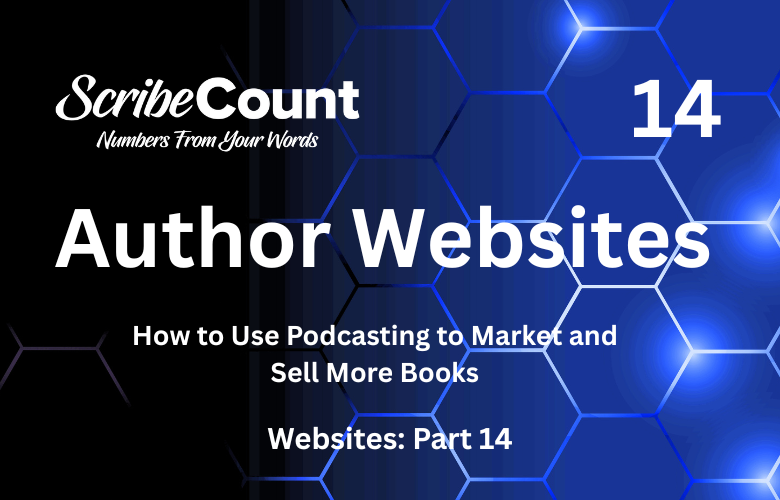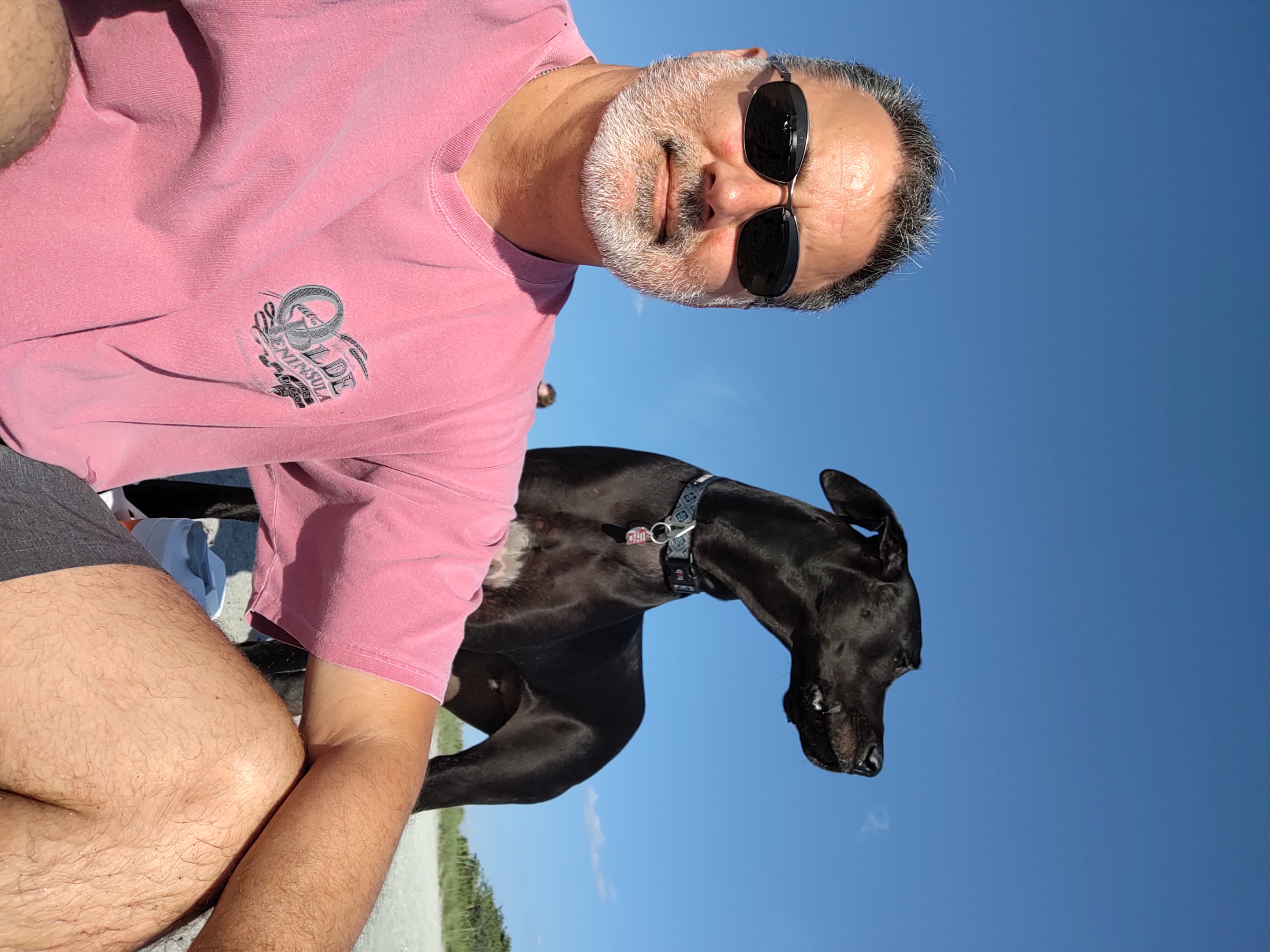How Indie Authors Can Use Podcasts to Market from Their Author Website
Here’s a question for every author: What if readers could hear your voice every week—telling stories, sharing news, and inviting them into your creative world? With podcasting, they can. Once a tech-heavy, studio-driven endeavor, podcasting has evolved into one of the most personal and effective marketing tools available to self-published authors. When paired with your author website and email strategy, it becomes a powerful part of your long-term publishing plan.
In this article, you'll learn what podcasting is, why it matters, how to get started, and how to connect it with your website and tools like ScribeCount, MailerLite, ConvertKit, and Seriously Simple Podcasting. By the end, you’ll understand how a podcast can help build reader loyalty, boost book launches, and turn your author brand into an experience.
A Brief History of Podcasting and Its Evolution
Podcasting began in the early 2000s, born from the rise of RSS feeds and the popularity of digital audio content. Originally, it required complex setups, studio time, and an intimidating amount of tech know-how. But as demand grew, platforms like Anchor, Buzzsprout, and Podbean simplified the process. Today, any author with a microphone and a message can create a show.
This shift matters. For indie authors, it means podcasting is no longer reserved for big-budget creators. It’s now a scalable, flexible, and affordable tool that helps you engage readers in a much more personal way than a blog or ad ever could.
Why Podcasting Builds Loyalty and Drives Sales
Readers who listen to you regularly form a deeper connection than those who skim a blog or scroll past a tweet. Your voice, tone, and enthusiasm build trust and familiarity. That connection drives them to your newsletter, your online store, and—ultimately—your books.
Podcasting from your own site helps you:
-
Keep reader traffic on your platform, where your books and sign-up forms live.
-
Establish authority and intimacy in your genre.
-
Offer behind-the-scenes content, bonus scenes, or sneak peeks into works-in-progress.
-
Interview other authors, expanding your network and your audience.
According to Edison Research, podcast listenership continues to rise each year, with millions of people listening weekly. Listeners consume around 8 shows per week, and loyalty is high once they’re hooked.
How to Start a Podcast for Your Author Platform
Starting a podcast might sound technical, but it's surprisingly doable. You'll need a few basic tools, some quiet space, and a strong idea about who your podcast is for. Most indie author podcasts fall into two categories: solo commentary or interviews. You can also blend the two depending on your comfort and content.
Here’s what you need to launch:
-
A good USB microphone like the Samson Q2U or Blue Yeti.
-
Recording software such as Audacity (free) or GarageBand.
-
A podcast host like Buzzsprout, Anchor, or Podbean.
-
Integration with your author site using the Seriously Simple Podcasting plugin for WordPress.
Think about your audience. If you're writing cozy mysteries, your show might include plot breakdowns, interviews with other mystery writers, or discussions on genre tropes. If you're a sci-fi author, you might share worldbuilding tips or serialized fiction.
Podcast vs. Newsletter: Two Very Different Channels
While both are excellent communication tools, a podcast and a newsletter serve different purposes. Your newsletter is typically short-form and direct—a place for sales announcements, bonus downloads, and quick updates. A podcast, on the other hand, gives you time and space to dive deeper, tell stories, or talk casually with your audience.
A reader might skim your newsletter in 20 seconds. A podcast listener might stay with you for 20 minutes. The engagement is deeper, more immersive, and better suited to building an emotional connection with your work.
Timing and Frequency: How Often Should You Release Episodes?
Consistency matters more than frequency. A biweekly or monthly podcast is often easier to maintain than a weekly one, especially if you're also writing books. The key is to stick to whatever schedule you choose, so listeners know when to expect new content.
Based on listener behavior, a weekly or biweekly cadence works well. You’ll stay relevant without burning yourself out. And remember—record in batches when possible. It saves time and helps with quality control.
Podcasting + Book Launches = Buzz
Podcasting can become your secret weapon for book launches. You can build excitement in the weeks leading up to release by:
-
Teasing the plot and characters
-
Sharing insights from your writing process
-
Interviewing beta readers or audiobook narrators
-
Announcing preorders and exclusive launch bonuses
When you host your podcast on your author website, you're not just promoting your book—you’re driving traffic to your storefront, especially if you’re selling direct. Services like Shopify or Payhip can host your online shop, and podcast episodes can serve as marketing content around those listings.
Podcasting with Email Automation
Podcasting pairs naturally with email flows. You can use platforms like MailerLite, ConvertKit, or Klaviyo to set up automated sequences that:
-
Deliver new episodes as they drop
-
Share “listener-only” perks and giveaways
-
Segment your list based on listening behavior or genre preferences
If you’re also using ScribeCount to track your sales and engagement, you can monitor how podcast listeners behave over time. Are they opening more emails? Buying more books? That data helps you refine your podcast and make smarter marketing decisions.
The Challenges of Podcasting: What to Expect
Podcasting is rewarding, but it’s not without hurdles. First, it's a time investment. Recording, editing, writing show notes, and promoting your episodes takes work—often a few hours per episode. Second, podcast content is rarely evergreen. A discussion about your book launch in 2025 won’t be relevant in 2026 unless you repurpose the content.
You'll also need to manage:
-
Equipment costs: Entry-level gear is affordable, but there is still a startup cost.
-
Promotion: You need to drive traffic to your podcast just like your blog or books.
-
Consistency: Fading out (aka “podfading”) is common when creators underestimate the commitment.
However, with good planning and a realistic schedule, you can make podcasting part of your sustainable marketing strategy.
Translation and Global Reach
If you're reaching an international audience, podcast translation tools like Sonix, Rev, or Descript can create transcripts and subtitles. These not only improve accessibility but also help with search engine optimization and make your show relevant in more markets.
Some podcasters even record multilingual episodes or offer translated versions of select shows. This can significantly expand your reach, especially if your books are already available in multiple languages.
Blog Lifespan vs. Podcast Longevity
Blog posts tend to get traffic in waves and are often more SEO-focused. A podcast, especially when syndicated across platforms like Spotify, Apple Podcasts, and Google Podcasts, continues to bring in listeners over time. You can maximize your reach by embedding each podcast episode in a blog post, adding keywords and summaries for SEO value.
By combining your podcast and blog, you build both long-term discoverability and immediate engagement.
Final Thoughts: Building the System that Builds Readers
When your podcast, website, and email systems work together, you create an engine that attracts readers, deepens their connection, and keeps them buying. Your website becomes the central hub. Your podcast is your voice. Your email list is your bridge to sales. And with tools like ScribeCount helping track your progress, you can see real, measurable results.
Podcasting isn’t for everyone—but for authors who enjoy sharing their journey, have something to say, and want to build a loyal reader base, it’s one of the best moves you can make.

